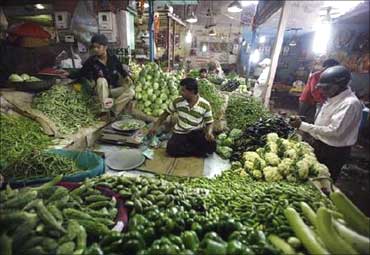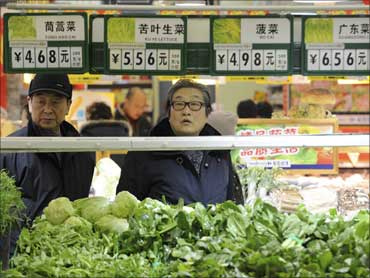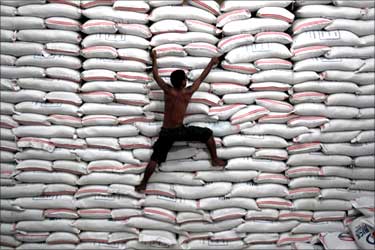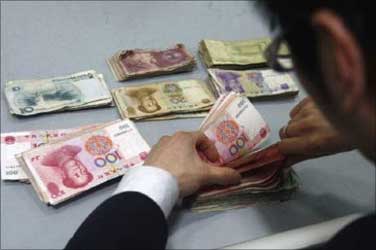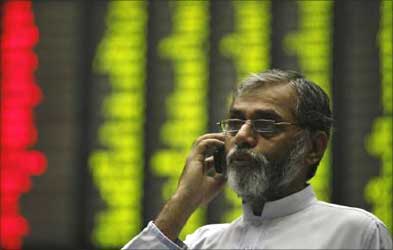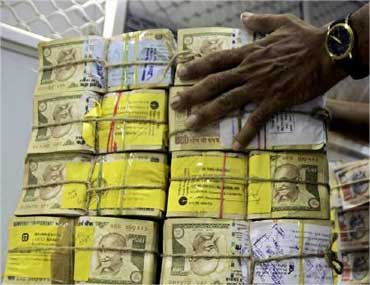 | « Back to article | Print this article |
Food inflation high in India? Well, not really
India did fairly well on the food inflation front in 2010, as per the Economic Survey tabled in Parliament on Wednesday, recording a lower rate of price rise in essential items than other major emerging economies of the world, barring the Philippines.
India's food inflation was the second lowest among all emerging economies in the 2010 calender year and the country also witnessed one of the steepest declines in overall inflation, the Survey said.
Click NEXT to read on . . .
Food inflation high in India? Well, not really
It said India's average food inflation in November, 2010, was 5.4 per cent, far lower than 15.8 per cent in Argentina, 9.2 per cent in Brazil and 11.7 per cent in China, as per data on 15 emerging nations from the International Labour Organisation for the month.
Click NEXT to read on . . .
Food inflation high in India? Well, not really
The Philippines recorded food inflation of 3.2 per cent in September, the month for which its data was considered.
Citing data from the International Labour Organisation, the Survey said that while headline inflation showed a rise in other emerging economies, the overall rate of price rise went down in India.
Click NEXT to read on . . .
Food inflation high in India? Well, not really
This was more so in the case of food inflation, where India was among the handful of emerging economies to have witnessed an easing in the rate of price rise.
Giving example from individual months taken at random, it showed that overall inflation in India was 8.3 per cent in November, as against 13.5 per cent in the same month of 2009.
Click NEXT to read on . . .
Food inflation high in India? Well, not really
During the same month, inflation in China soared to 5.1 per cent from 0.6 per cent in November, 2009, and it went up to 11 per cent in Argentina from 7.1 per cent a year-ago.
In the case of Brazil, inflation stood at 5.9 per cent in December, as against 4.3 per cent in the same month of 2009.
Click NEXT to read on . . .
Food inflation high in India? Well, not really
In contrast, food inflation in India stood at 5.4 per cent in November, 2010, down from 17.6 per cent in the year-ago period.
Other major emerging economies, including Argentina, Brazil, China, Egypt, Iran, Pakistan, Uruguay, Ukraine and Indonesia saw prices of food products spiraling upward at a much higher rate.
Click NEXT to read on . . .
Food inflation high in India? Well, not really
The Survey also blamed currency competition for creating inflationary pressure in emerging economies.
Talking about the issue, it said each country's central bank is taking steps according to their own views.
"This has given rise to destabilising currency competitions and may be a factor behind the recent increase in inflation in emerging economies," the Survey said.
